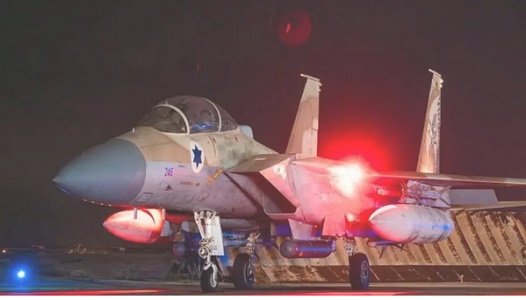Iran has launched hundreds of aerial drones and missiles at Israel, marking a widely anticipated reprisal attack. It is the first such direct clash between the two enemies, who have been engaged in a years-long shadow war, with Iran using proxy forces. The Israeli military said Israel and other Continue Reading
The United States has restricted travel for its employees in Israel amid fears of an attack by Iran. The US embassy said staff had been told not to travel outside the greater Jerusalem, Tel Aviv or Beersheba areas “out of an abundance of caution”. Iran has vowed to retaliate, blaming Israel for a strike on […]Continue Reading
A senior commander of an Iran-backed militia has been killed in a US drone strike in Baghdad. A leader of Kataib Hezbollah and two of his guards were in a vehicle when it was targeted in the east of the Iraqi capital. All three of them died. The Pentagon said the commander was responsible for […]Continue Reading
Pakistan has launched missile strikes into Iran, reportedly killing nine people, after Iran carried out strikes in Pakistan late on Tuesday. Pakistan said its strikes had hit “terrorist hideouts” in Iran’s south-eastern Sistan-Baluchestan province. Three women, two men and four children were killed, Iran’s state TV said. The reciprocal air strikes Continue Reading
Some of the individuals involved in the assassination of Iran’s top nuclear scientist have been arrested, an Iranian parliamentary adviser has said. Hossein Amir Abdollahian told Al-Alam TV he was unable to share the details for security reasons, but that the perpetrators would not escape justice. He also said there was evidence proving Israeli involvement. […]Continue Reading
